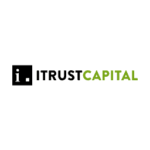For many in the technology industry, blockchain has become one of the most exciting inventions of the 21st Century. Both the innovation this technology represents, and the sheer amount of money flowing through blockchain-enabled cryptocurrencies are attracting significant attention from forward-thinking businesses and investors alike.
But part of the excitement, undeniably, is because no industry has yet figured out exactly what to do with blockchain.
Like any breakthrough in its infancy, blockchain is still an intriguing and unproven technology. For all the aspirations of bitcoin and related projects, it has not enabled a replacement for fiat currencies (not yet, at least). Nor, with their wild market swings, have cryptocurrencies proven a reliable medium for storage of value.
The blockchain is a potentially revolutionary technology because it manages to do something no one had previously accomplished: create unique, individual ownership of a digital asset. This has ramifications for industries from arts and science to finance and even government. What, exactly, those ramifications are remains unclear, though.
Here are three banks hoping to find out.
UBS Group
UBS is one of the largest financial groups in the world, with reported assets of over $900 billion. They have partnered with IBM and a consortium of other banks and financial institutions to create a blockchain-based trade system.
The project, as reported by Reuters, would create a more automated trade finance process with a specific emphasis on global transactions.
Currently, when importers and exporters seek financing, a lending institution has to go through a laborious process that typically involves hardcopy paperwork. However, the public ledger aspect of blockchain will allow UBS’ new system to eliminate several steps in that process. It will let banks record and track their investment far more efficiently and in a centralized manner, helping to eliminate the mistakes and delays that can arise when multiple parties are trying to track the same shipments around the world.
The Saudi Arabian Monetary Authority (SAMA)
Saudi Arabia has launched a pilot project to make blockchain the unofficial de facto format for all cross-border payments.
In a deal announced February, the SAMA said that it has partnered with Ripple to use the cryptocurrency’s platform for all payments made into or out of the Middle Eastern nation. The Ripple project is designed specifically to exchange currencies and move money around the world cheaper and more quickly than traditional banking services, so both the company and the SAMA have said they believe this will make it far easier for third parties to do business in Saudi Arabia.
KFW Development Bank
The German development bank, generally known as KfW, has developed a program called TruBudget along with an increasing list of partners around the world.
TruBudget takes advantage of the public ledger to improve transparency in public financing. Banks on the system put all of the details of public projects onto a public ledger so that anyone can access records of spending on works such as schools, roads and municipal buildings. From there, the financial institution updates the ledger with all spending and transactions related to the project, including purchases and contracts.
KfW’s goal is to improve efficiency and quality of government by allowing the public to see a secured record of all public spending. In particular, in areas of the world where public corruption remains a major concern, this has the potential to shed increasing amounts of light on how politicians spend municipal funds and whose pocket that money ends up in.
Blockchain’s secured public model has opened up enormous opportunities for experimentation. These three projects represent just the tip of a much larger iceberg, but they also show the potential range of this technology. Among UBS, SAMA and KfW alone banks are experimenting with trade, currency supply and good government initiatives.
Blockchain technology is about far more than reinventing currency. The question ahead is what that will mean and how far it can go.
Banks.com provides the most up-to-date information on blockchain and banks as well as other financial tools for the savvy investor. Interested in getting a comprehensive view of your finances?






